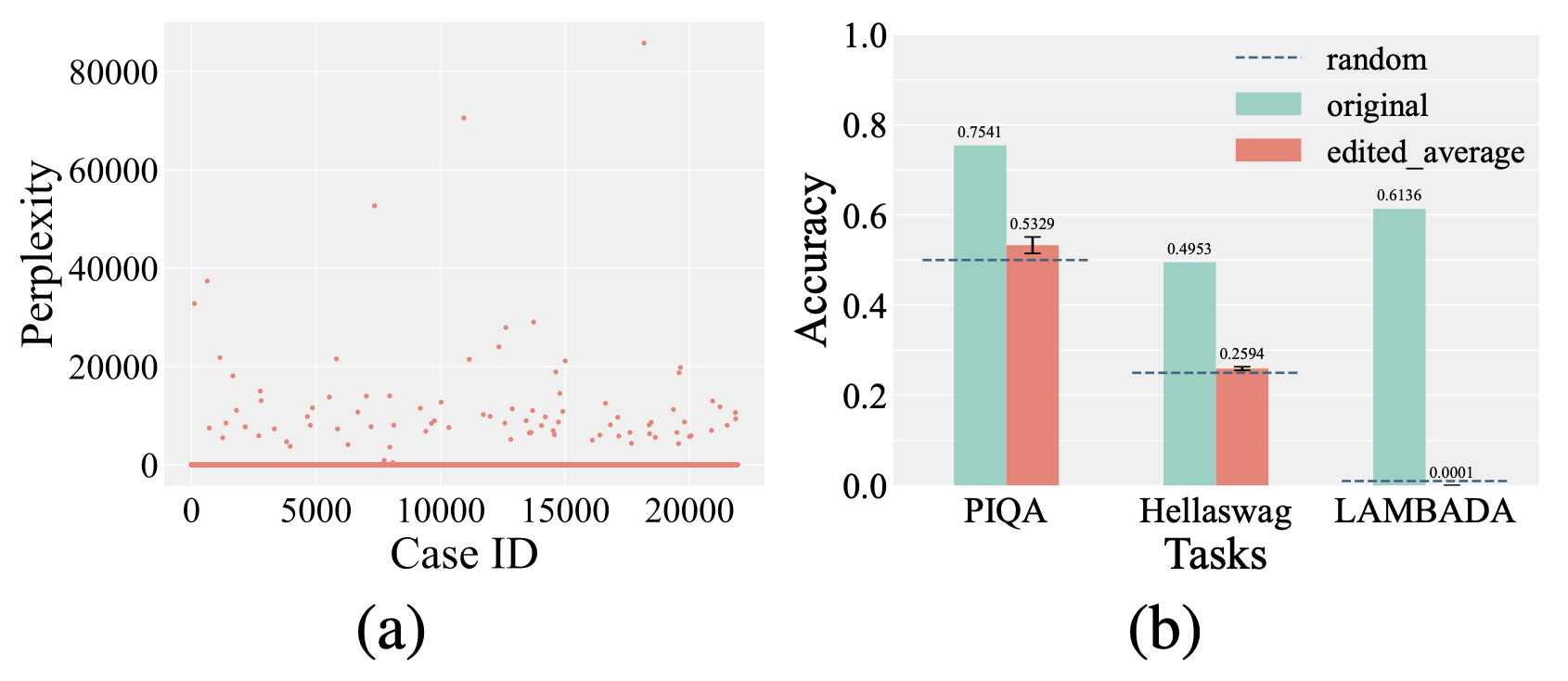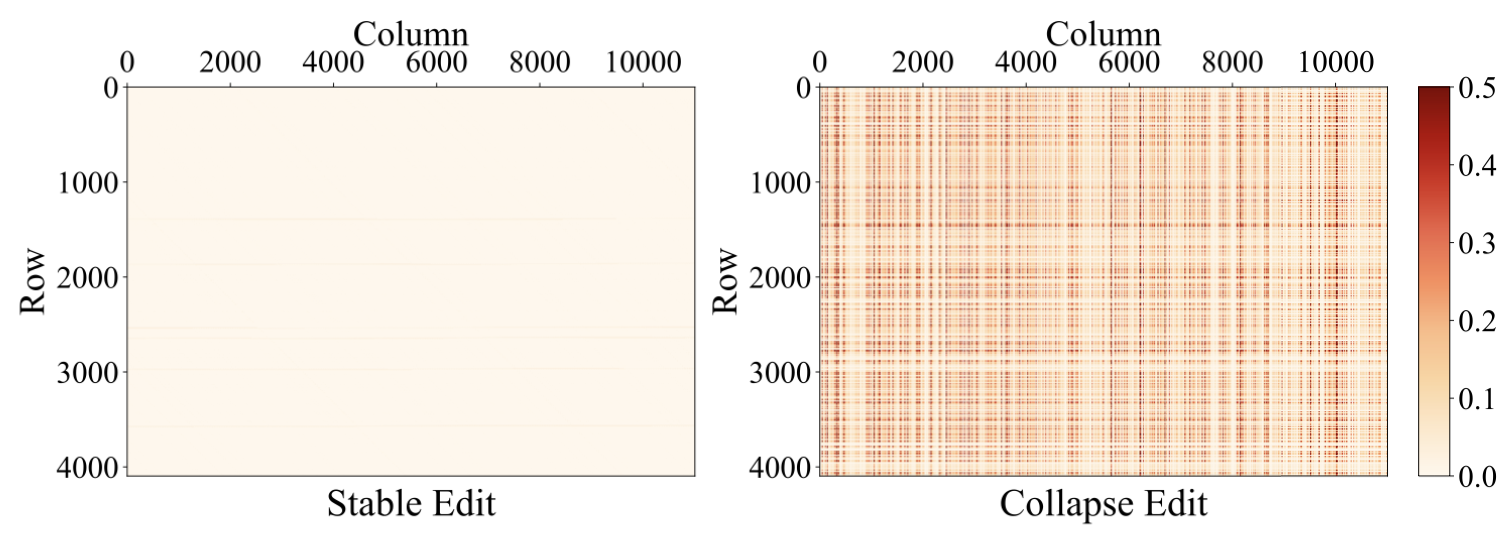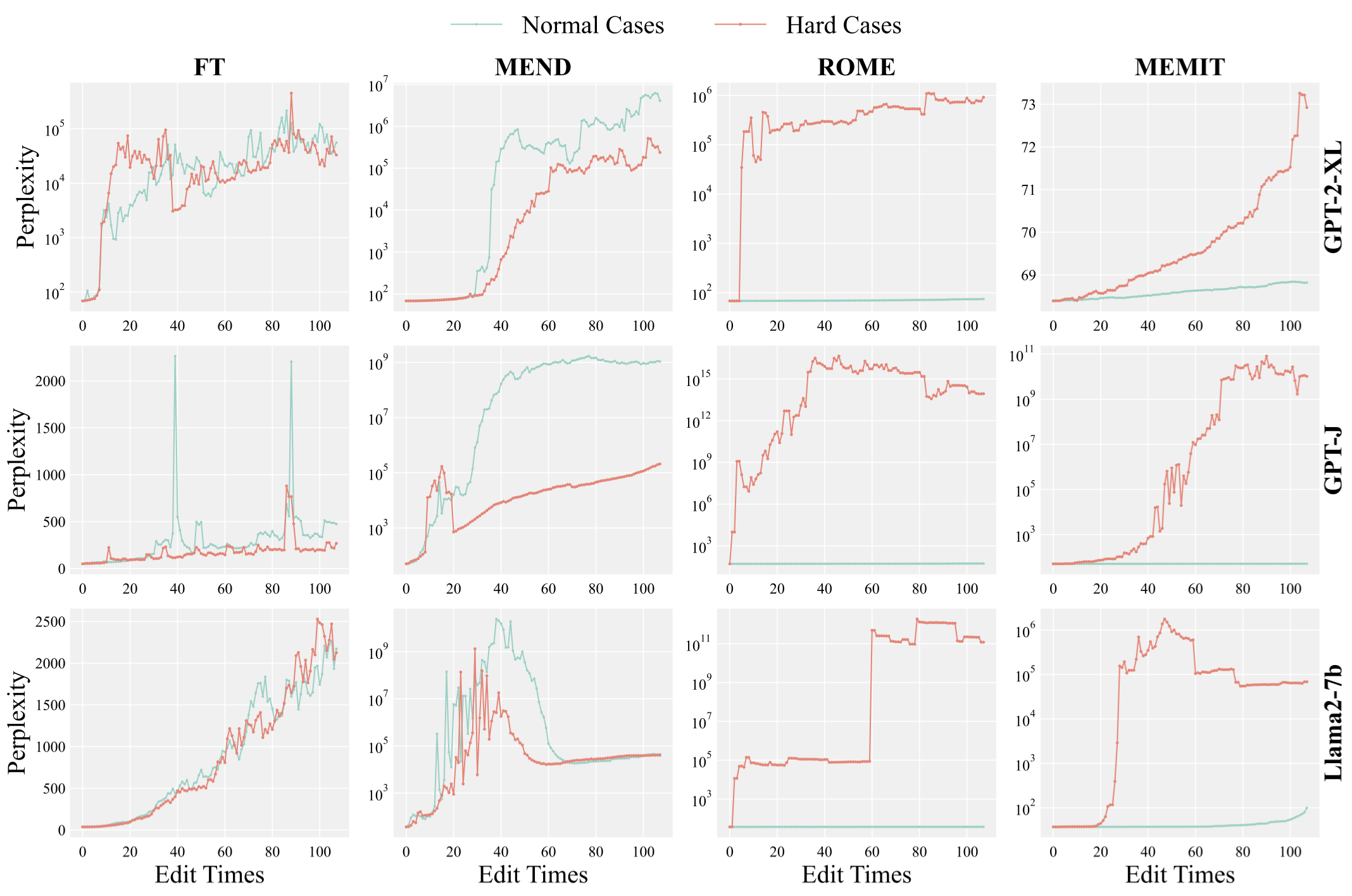Although model editing has shown promise in revising knowledge in Large Language Models (LLMs), its impact on the inherent capabilities of LLMs is often overlooked. In this work, we reveal a critical phenomenon: even a single edit can trigger model collapse, manifesting as significant performance degradation in various benchmark tasks. However, benchmarking LLMs after each edit, while necessary to prevent such collapses, is impractically time-consuming and resource-intensive. To mitigate this, we propose using perplexity as a surrogate metric, validated by extensive experiments demonstrating changes in an edited model's perplexity are strongly correlated with its downstream task performances. We further conduct an in-depth study on sequential editing, a practical setting for real-world scenarios, across various editing methods and LLMs, focusing on hard cases from our previous single edit studies. The results indicate that nearly all examined editing methods result in model collapse after only few edits. To facilitate further research, we have utilized GPT-3.5 to develop a new dataset, HardEdit, based on those hard cases. This dataset aims to establish the foundation for pioneering research in reliable model editing and the mechanisms underlying editing-induced model collapse. We hope this work can draw the community's attention to the potential risks inherent in model editing practices.






@inproceedings{yang2024butterfly,
title={The Butterfly Effect of Model Editing: Few Edits Can Trigger Large Language Models Collapse},
author={Wanli Yang and Fei Sun and Xinyu Ma and Xun Liu and Dawei Yin and Xueqi Cheng},
booktitle={The 62nd Annual Meeting of the Association for Computational Linguistics},
year={2024},
url={https://openreview.net/forum?id=r07DBA0gAZ}
}